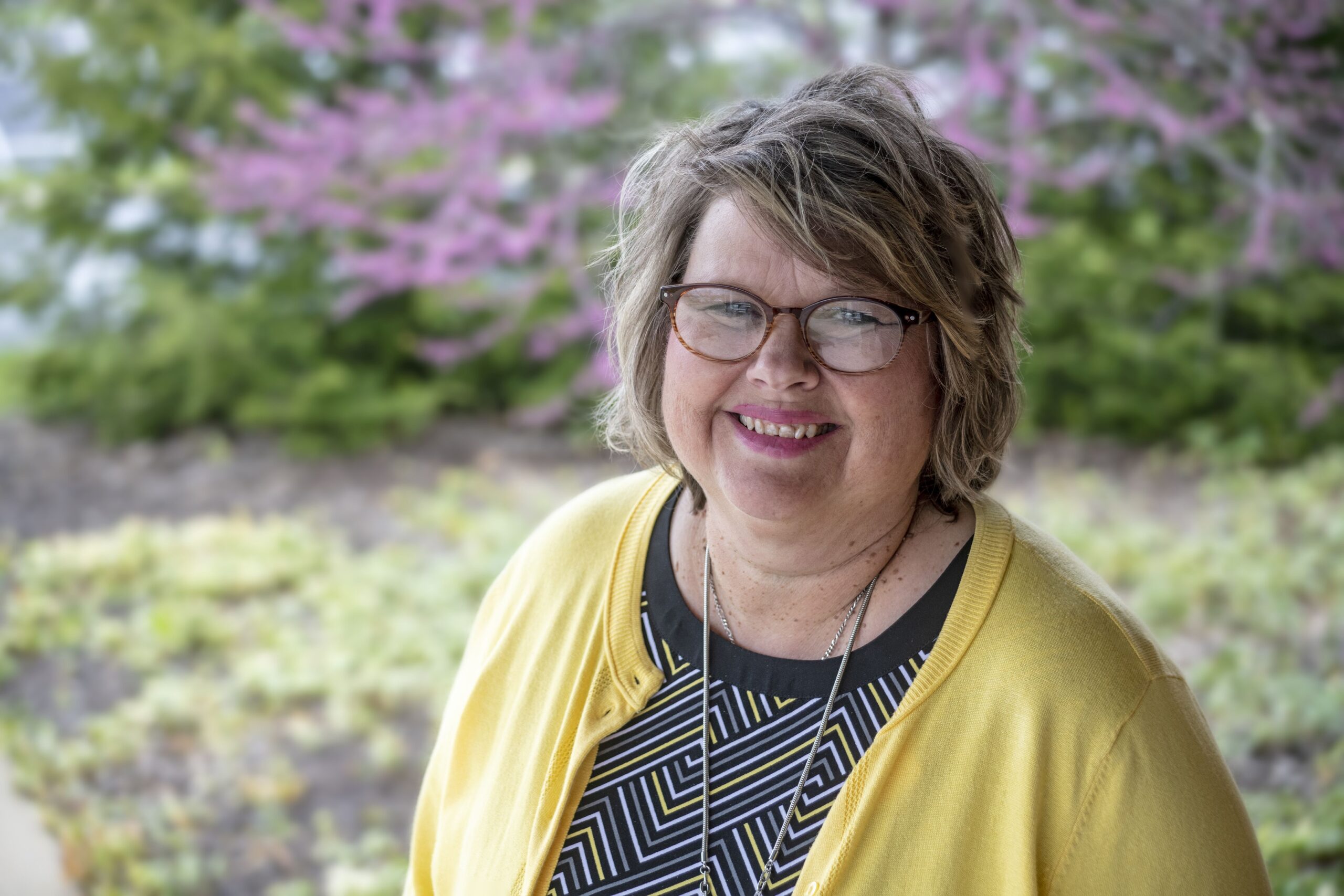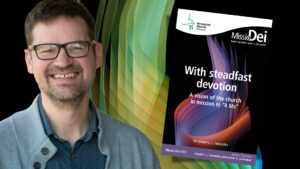NEWTON, Kansas (Mennonite Mission Network) — When Latin American women looked for an Anabaptist devotional book written by women, in Spanish, they couldn’t find one.
Though the COVID-19 pandemic shut down the world, it didn’t shut down the resilience of these women who, rather than only wishing things were different, quickly created the resource themselves in 10 months. Rich in passion and gifts, they moved ahead without funding.
With great faith during a difficult time, the Movement of Anabaptist Women doing Theology in Latin America (MTAL) created a 2021 daily devotional. They didn’t have a publisher, an up-front funding source, or a precedent of Latin American lay women writing about how God works in their daily lives from a Mennonite/Anabaptist perspective.
Shortly after the initial vision was cast, a team of four women from MTAL launched the planning for the devotional project. Devocionales 2021 was completed in December in preparation for use in January.
MTAL coordinators worked together to invite broad participation in the project, including 232 writers from 21 countries, 28 editors, 10 members of the MTAL Education and Materials Commission, and several designers. The women around the globe worked digitally to produce the God-birthed resource, written in Spanish. Seeking to be inclusive, devotionals were also accepted in Kekchi (an indigenous language of Guatemala) and Portuguese, which appear in the book in both the original languages and Spanish.
In recent emails and interviews, the women shared their joy with Linda Shelly, Mennonite Mission Network’s director for Latin America, who engages deeply with MTAL. Two of the team members who developed the proposal are Ruhama Pedroza, from Mexico, and Isabel Salamone, of Argentina.
"A friend asked me if I knew of any Latin American devotional books written by Anabaptist women for women," Pedroza wrote. "I shared the question in an MTAL WhatsApp group, and realizing that no one was aware of this type of book, we agreed to write one. "
Salamone wrote, "Something that seemed far away, almost impossible, came true — I believe, because it was in accordance with God’s will and because personal egos could be overcome and we set out to work enthusiastically, offering our gifts, without reservation, without speculating who contributed most.
Llansee Dueñas, of Honduras/Guatemala, and Karen Flores, from Honduras, were also part of the team that prepared and presented the proposal for a devotional book to the MTAL Education and Materials Commission, coordinated by Olga Piedrasanta, of Guatemala. The proposal included a topic for each month and a focus for each week. January begins with the theme "Living Kingdom Values from the Mennonite Anabaptist Perspective." December concludes with "Advent" as the overarching theme.
"Despite the pandemic, isolation and so much sad news surrounding me, coordinating this project in the Southern Cone [of South America] and also being one of the writers came to me like a balm of hope to occupy myself," said Ester Bornes, of Argentina.
For many of the planners, writers and designers, this was their first experience creating a book. "I had long dreamed of participating in something like this," wrote Beatriz Méndez of Cuba. "A dream come true! I wanted the world to know that God answers our prayers. I told the Holy Spirit that I just wanted to be a channel of blessings for hundreds of women who would read these reflections daily."
When the work was finished in electronic format, MTAL held virtual meetings with the writers to celebrate. "It was a great privilege for me to participate in these times of gratitude and reflection," Shelly said. "I am very happy to be able to share this great resource developed by MTAL." Devocionales 2021 is now available in the Biblioteca Digital Anabautista (Anabaptist Digital Library). Also, Marisol Arriaga, from Mexico, opened a Facebook page, called Libro Devocional MTAL, to share the daily devotionals.
Although the digital format is very useful, it is not accessible for everyone. MTAL women in some countries printed copies for women without digital access. Karen Flores printed copies on her own home printer. "I felt God’s call to deliver the copies quickly, so they could be distributed in different places in Honduras, at the lowest possible cost," Flores said. "With the help of my parents, I delivered 105 devotionals in 14 days, and then, I continued with the work of printing and collating for several more days."
A month into using the devotional book, Llansee Dueñas said, "From my own experience, it was liberating to be able to collaborate for a devotional book full of the current reality that Latin American women live. Along with that was the joy from comments by young women who have felt identified and heard. They, among others, have taken this book as practical and realistic. It has motivated us to accompany each other and make our own experiences visible."
………………………………………………………………………………………………………………
Example of a devotional, January 7
Written by Magdalena Vieyra, Iglesia Anabautista Menonita de Buenos Aires (Anabaptist Mennonite Church of Buenos Aires), of Argentina, and translated by Linda Shelly
Bible passage: "How good and pleasant it is when God’s people live together in unity!" Psalm 133:1 (NIV)
Community: space to grow in the values of the kingdom
Harmony is one of my favorite words; it implies diversity, beauty and balance. In music, harmony arises when there are different chords combined in a certain way. How boring music would be if all songs had only one note! Just as there is no harmony without differences, there is also no community without a diversity of people. Let’s propose to live in harmony, as the psalm invites us. What is beautiful is also complicated. Is there a space shared by family, work colleagues, a community of faith or service where no differences appear? I do not think so. It is impossible to hide diversity because that is how God created us. The differences can generate great tensions and frustrations that lead us to feel the desire to impose, to doubt the intentions of others, to give up the commitment to the community.
I asked a musical friend what the term "musical harmony" means to her and she summarized: "Seeking harmony is managing the tensions that arise from combining the different notes in the search for something deep and beautiful."
As in music, the community will be a harmonious space, as long as we find a way to manage tensions. When I experience these tensions, I try to overcome them, thinking that in our differences there is potential for beauty in the space we share, and it is about learning to combine these differences.
In the combination of personalities, talents, looks and experiences, we will have to find the right way to treat each other. A friend likes to say, the kingdom of God is to treat each other well.
Let us pray: May we grow in love and be united in perfect harmony.
Note: WhatsApp groups and Facebook provide a forum for sharing reflections on the devotionals. In one group, Blanca Resinos, from Honduras, replied to this devotional, "Thank you for this day’s devotional, which contains the invitation to delight in harmonious unity within diversity. There is no doubt that this call contains a great challenge, because it is about living together. If we understand "living" to mean "sharing space and time," it can help us to reflect on the permanent relationships that we establish in our daily lives, which must be founded on love, which is, as the Apostle Paul writes, the perfect bond. "








